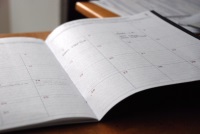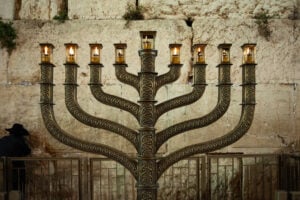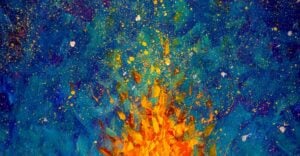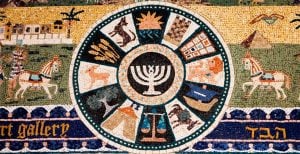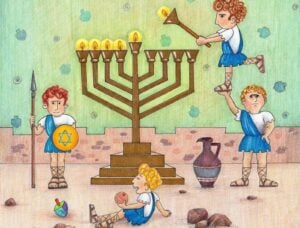Today is Rosh Chodesh. This literally means, “Head of the Month” and is when we celebrate the beginning of the new Jewish month. The Jewish year doesn’t fall in step with the “regular” Gregorian calendar; we take special steps to make that happen.
Summary: What is Rosh Chodesh?
Rosh Chodesh is the beginning of the new Hebrew month. Hebrew months are based on the lunar cycle and are either twenty-nine or thirty days long. The length of the months is devised according to a complicated system that ensures that certain holidays cannot fall on certain days.
When the month is 29 days, Rosh Chodesh is celebrated on the first day of the new month. We celebrate Rosh Chodesh on the thirtieth day of the outgoing month and the first day of the new one when the month is 30 days long.
In Biblical times, Rosh Chodesh was celebrated with special sacrifices. Today, we sing the Hallel prayer and have a special Torah reading to commemorate the new month.
The Lunisolar Calendar
The Jewish year uses lunar months: the time it takes for the moon to orbit the Earth, or appear to go through a full waxing and waning cycle. However, it also uses solar years: the time it takes for the Earth to orbit the sun. A lunar year is 48 weeks, and a solar year is 52.
As a lunar and solar year are two different lengths, Judaism takes measures to maintain the confluence of the two cycles. Seven times in 19 years, an extra 30-day month called Adar Sheni is added to the calendar, making sure that the two cycles stay abreast of each other.
These solar calculations help keep the Jewish holidays in the appropriate season. This is different from other religions that are based purely on the lunar calendar like Islam. That’s why Ramadan can fall at any time during the year, but Passover is Chag HaAviv – the spring festival.
It’s a complicated system, but vital to the Jewish holidays. So many of our festivals are designated by season and chime with the agricultural year: Sukkot and Shavuot are both harvest festivals, and this system means that they are always celebrated in their proper time.
